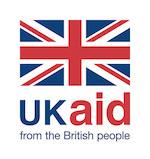Uganda hosts the sixth largest refugee population in the world, with over 1.4 million refugees from South Sudan, Democratic Republic of the Congo, Somalia, Eritrea, and Rwanda among other countries. The majority of refugee households are female-headed.
Because of the long-term stability, favourable policy environment, and freedom of movement in Uganda, the majority of refugees in the country are either already engaging in some sort of small business or would like to start one (a recent World Bank study stated that 72 per cent of refugees are operating some sort of micro or agri-business.) Despite these advantages, research by the GSMA and others shows that refugees still face severe challenges to accessing the financial services they need to expand their businesses beyond a micro-level.
In January 2019, Grameen Foundation and the GSMA Mobile For Humanitarian Innovation Program (M4H), hosted a workshop in Kampala on increasing access to financial services in humanitarian contexts, to discuss the barriers refugees face in accessing digital financial services, and possible facilitators to increase access and uptake, especially among women.
The key barriers to access and uptake of financial services identified were:
- Long distances to financial institutions and mobile money agents (Only 17 full-time mobile money agents currently operate in Bidi Bidi Refugee Settlement and all of these agents are located in Zone 1 of the settlement);
- Digital literacy hinders access of digital financial services: Both not understanding how to use phone applications, and an inherent distrust of unfamiliar digital services prevents many women and older people from engaging in mobile money/ mobile banking transactions; and
- Policies that limit formal credit to refugees: Refugee camp populations find it extremely difficult to access formal credit. This is because many financial institutions have not considered serving the refugee population before, there is a perception that refugees are highly mobile, and refugees lack traditional credit collateral.
The key facilitators identified in increasing access and uptake of digital financial services included:
- Expanding agent networks
- Addressing digital literacy challenges
- Supporting master agents to improve liquidity management
To address these challenges in a way that is responsive to the needs, priorities and understanding of rural, low-literacy women, the GSMA, MTN Uganda and Grameen Foundation collaborated to develop the Digital Literacy Training Guide.
The guide is a contextually appropriate, engaging curriculum designed to address the knowledge, attitudinal and skills barriers that prevent refugees-especially women–from accessing and using financial services. This will be done by building their:
- Awareness of digital-financial services available in their area, and the use cases in their lives; and
- Comfort with digital financial services by addressing common consumer protection concerns and fears which limit uptake of new digital technologies.
Unlike some of the other digital literacy training tools available, this guide is uniquely designed to activate the demand of customers who have never engaged with digital financial services or digital tools before; customers who are just buying their first feature phone and opening up their first mobile money account.
The Digital Literacy Training Guide is designed to be delivered by local mobile money agents and local women influencers, and the GSMA, MTN and Grameen are testing it as part of a wider approach, to engage women in local communities as promoters of digital literacy and eventually onramp them to careers as digital financial services agents in their communities.
In the past the GSMA Mobile for Development team has also worked on another digital literacy training guide. In 2016 the GSMA Connected Society programme – with financial support from FCDO – developed the Mobile Internet Skills Training Toolkit (MISTT), a set of resources to promote digital literacy, help people use the internet more safely on their mobile and ensure they have the skills required for a digital future.
It is the hope of all the partners in this project that the training results in the development of a robust digital-financial ecosystem and provide a much-needed financial inclusion to refugee populations in Uganda.


